 HERE WE ARE
HERE WE ARE 
FEMINISM
FOR THE REAL WORLD
EDITED BY KELLY JENSEN

Algonquin 2017
For THOSE WHO STARTED the JOURNEY and for THOSE WHO WILL CONTINUE IT
Contents
Chapter One
STARTING THE JOURNEY
Chapter Two
BODY AND MIND
Chapter Three
GENDER, SEX, AND SEXUALITY
Chapter Four
CULTURE AND POP CULTURE
Chapter Five
RELATIONSHIPS
Chapter Six
CONFIDENCE AND AMBITION
Chapter Seven
GO YOUR OWN WAY
Intersectional Rosie the Riveter
by Tyler Feder
JOIN the FEMINIST PARTY
An Introduction
Here We Are: Feminism for the Real World is a guide to understanding what it means to be a feminist and an invitation to one of the most important, life-changing, and exciting parties around.
This is a chance to dive in and out of the different experiences, ideas, and beliefs that underlie feminism.
Feminists come in every shape, size, form, and background. What unites feminists is the belief that every personregardless of gender, class, education, race, sexuality, or abilitydeserves equality. This is a movement about embracing differences and encouraging change that benefits all facets of society. This is a movement about listening as much as it is about speaking up.
Here We Are: Feminism for the Real World aims to enlighten, inspire, and encourage critical thinking, as well as thoughtful action in your everyday life.
LETS GET THE FEMINIST PARTY STARTED!
Chapter One
STARTING the JOURNEY
THE PEOPLE AND THE WORLD AROUND US
shape our individual paths to feminism.
Theres no right way and no wrong way. There are no dead ends. The journey is always changing, always shifting, and influenced by our own experiences and perspectives.
Whether you identify as a feminist now or are curious about how people come to label themselves as feminists and own that identity, these pieces will help as you begin your journey through the various paths, influences, and experiences toward feminism.
Forever Feminist
BY MALINDA LO
Fifteen years after high school, Im in an old friends apartment, where he has pulled out the yearbook from our senior year. He flips eagerly to a page at the back, in the section of the yearbook dedicated to parting notes. Theres my message to him, and, at the bottom, where I signed off, a valediction I dont remember writing: Forever feminist.
It makes me laughuncomfortably, because instantly I am once again an awkward, outspoken girl in glasses with a stereotypical Asian bob haircut, pretending to fit in though Im desperate to leave my small town behind. But even as my past self flashes into sharp relief, I feel as if Im gazing at a missive from another world. The passage of time erases so much. What did I mean by that valediction? Why did I write it? Who was I back then?
High school yearbooks are littered with exhortations to Stay the same! or Dont change! They are futile protests against the inevitable transition from adolescence into adulthood. Maybe the forever in my valediction was a similar attempt to declare my unwavering selfhood even though I sensed change coming like a spring flood down a mountainside. Already, I could hear the muted roar in the distance.
But what did I mean by feminist? In order to understand this message from the past, I have to excavate my own memory, dig through layer upon layer of accreted experience to expose the girl I once was, the girl I grew out of and away from. Who was she? And am I still that girl?
My personal ideal of a feminist is rooted in one woman: my paternal grandmother, Ruth Earnshaw Lo. She was a white American woman who fell in love with a Chinese man at the University of Chicago in the 1930s, where she was an undergraduate and he was a graduate student. When they met, interracial marriage was still not legal nationwide in the United States; Loving v. Virginia did not declare an end to anti-miscegenation laws until 1967. So, in 1937, my grandmother married my grandfather, John Chuanfang Lo, in Shanghai. The day after their wedding, the Japanese invaded Shanghai, sending my grandparents fleeing down the Yangtze River and ultimately all the way to Yunnan Province on the border of Burma, where they were refugees during World War II.
I grew up on stories about my familys life and hardships in China, and many of those stories were told to me by my grandmother, beginning when I was very young. If those stories were dotted with tragedies, they were also leavened with sharp humor and a make-do, survivor mentality. My grandmother told stories about her time refugeeing in Yunnan, rationing out the last of their coffee, learning how to bake Western bread and pies with limited Chinese ingredients. She told stories about an American pilota Flying Tigerwho crashed near her home and was astonished to encounter an American woman in the middle of nowhere, Asia. She told stories about flying in a U.S. cargo plane over the Hump of the Himalayas into India, with an oxygen mask on her face and a parachute strapped to her back in case the plane was shot down. That flight was only step one of a months-long journey, mostly by sea, from India to Australia to South America to Los Angeles, where en route she discovered she was pregnant with my father.
The rest of my grandmothers life was equally dramatic. She and my grandfather returned to China in 1947, hoping to help rebuild his homeland after the devastation of war, and they stayed after the Communists took over in 1949. It seems naive in retrospect, but back then, nobody knew how repressive Mao Zedongs regime would be. My grandmother ended up spending the next thirty years in China, unable to leave until 1978, after Maos death opened the door once again to the West. My grandmother wrote a memoir about her experiences titled In the Eye of the Typhoon, and it was published in 1980, when I was six years old. I grew up knowing two things for sure: my grandmother was a writer, and I wanted to be like her.
My grandmother was a woman who had the courage to go after what she wanted. She had the hard-won savvy of someone who had lived through countless tumultuous experiences and come out the other side not only whole, but somehow improved. She cultivated an air of mystery and a biting wit, and she always encouraged me to write. Some of my earliest memories are of inventing stories with her, and as I grew up and began to write them down, I shared them with her. She read them with a welcoming seriousness. Without her, I never would have become a writer.
I dont remember talking about feminism with her, and I dont know whether she identified as one, but in my mind, my grandmother was every inch a feminist. It was she who introduced me to many of my other feminist heroes: Louisa May Alcott and her Little Women, Madeleine LEngle and her wonderful novels, the poet Edna St. Vincent Millay.
When I was growing up, I took refuge in fiction and poetry because the real world made me feel like a perpetual outsider. I was one of four Asian American students in my small town; I can remember each of their names and faces even today. It was always clear to me that I was not like everyone else, and though my grandmothers stories made me proud of my familys background, I yearned to be accepted like any other American kidto be normal. Between the pages of a book, the heroines I loved most werent Asian, but they did not judge me for being different. When I was in their worlds, I
Next page

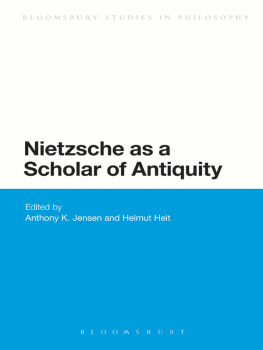


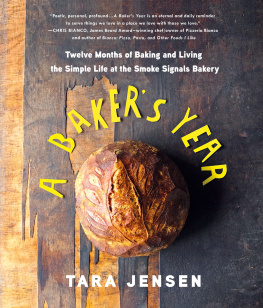
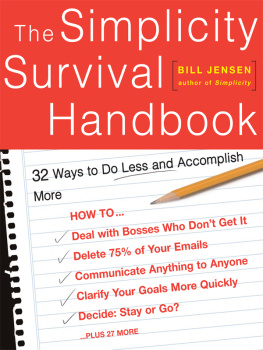

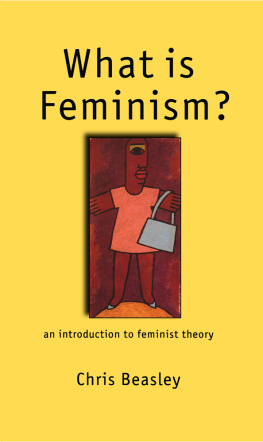
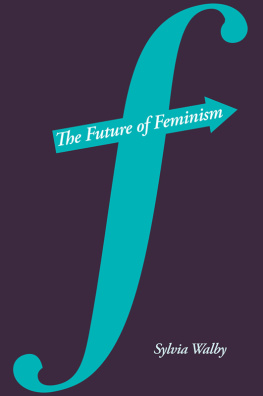
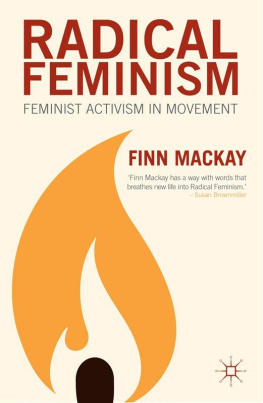
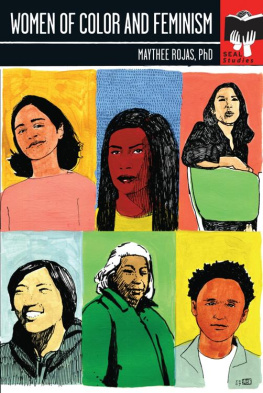
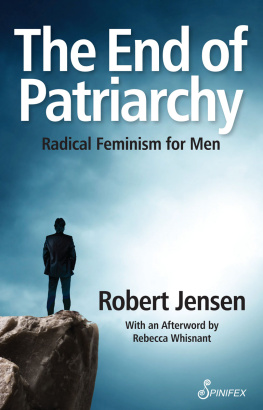
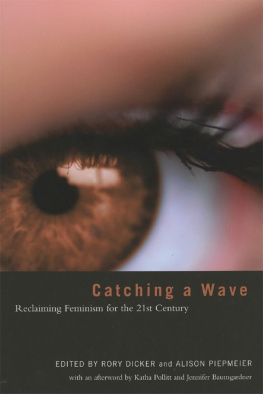
 HERE WE ARE
HERE WE ARE 
